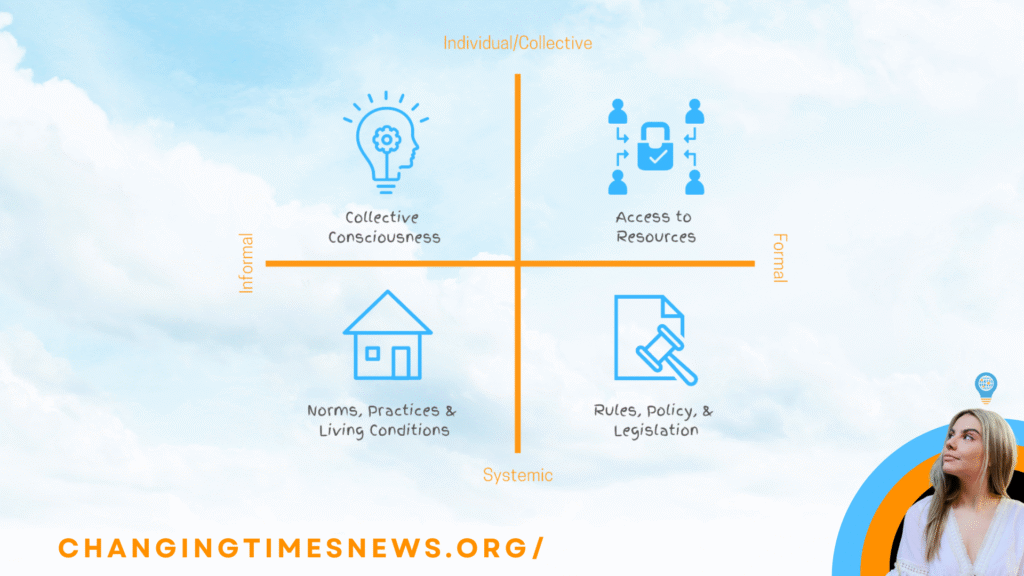In recent years, mindfulness has become a billion-dollar industry, promoted as a remedy for stress, burnout, and productivity woes. But as Changemaker Q&A host Tiyana J argues in the latest episode, simply calming individuals is not enough. For social movements to thrive, mindfulness must move beyond “McMindfulness” and instead serve as a collective tool for justice and transformation.
“Traditionally mindfulness has focused on the individual,” Tiyana explains. “But when we place this idea of mindfulness into a broader context of social justice or social change, it becomes a powerful tool at both the individual and collective level.”
The Rise of McMindfulness
The critique of what scholar Ron Purser has called “McMindfulness” points to a troubling trend: mindfulness stripped of its critical and ethical roots, repackaged as a consumer product. Meditation apps, corporate wellness programs, and Instagram-friendly soundbites promise inner calm while leaving structural injustice untouched.
As Purser and others have noted, this model risks privatizing stress—placing the burden on individuals to manage the pressures of neoliberal society, rather than questioning the systems that cause them. The global mindfulness market, valued at over $1 billion, often encourages people to adapt to inequitable environments instead of challenging them.
Mindfulness as a Changemaker’s Tool
In contrast, the episode emphasizes mindfulness as an essential skill for changemakers: a way to build presence, self-awareness, and solidarity. “So much of the work that is essential to address problems like racism requires mindfulness,” says Tiyana. It is not just about breathing exercises or momentary calm, but about developing the awareness to unlearn harmful patterns, confront biases, and engage in more open dialogue.
This approach echoes the Inner Development Goals framework, which outlines 23 skills—such as presence and perspective-taking—that complement the United Nations’ Sustainable Development Goals. By cultivating these capacities, individuals and communities can better navigate conflict, foster inclusivity, and sustain collective action.
From Individual Calm to Collective Transformation
The shift from mindfulness as stress relief to mindfulness as social transformation is not a small one. It requires making practices more accessible across diverse communities, while ensuring that they serve collective wellbeing rather than individual self-optimization.
Mindfulness-based interventions (MBIs), widely studied in health and education, already show evidence of improving wellbeing, communication, and cooperation. But as Tiyana notes, the challenge lies in linking these individual practices to the broader work of social change—building “mindful movements” capable of addressing root causes, not just symptoms.
“Oneness doesn’t mean sameness,” she reminds listeners. “It’s about recognizing the thread that connects all of us—and using that awareness to celebrate diversity and challenge systems of oppression.”
Ultimately, moving beyond McMindfulness means reclaiming mindfulness as a practice of liberation, not commodification. As Tiyana puts it, the task is to “use mindfulness as a tool to come together as a collective, to change the systems and structures we find ourselves in.”


